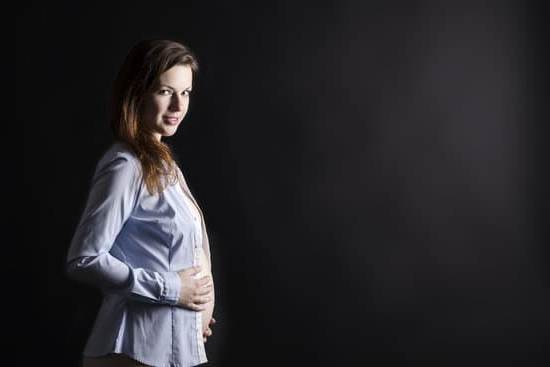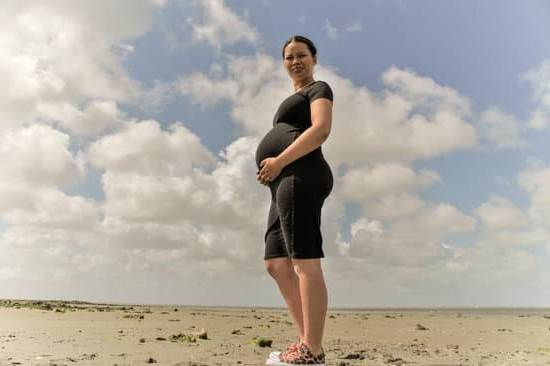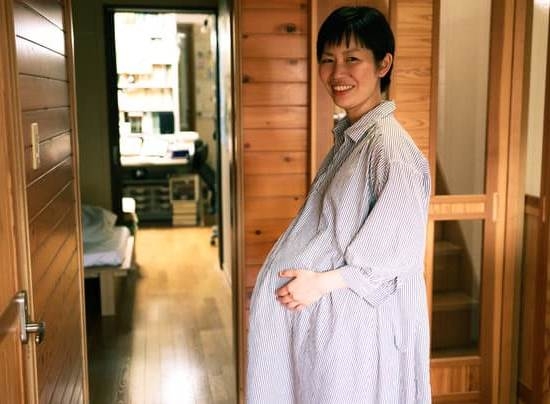Is lower back pain a sign of pregnancy? Many women experience lower back pain as an early sign of pregnancy. Understanding the early signs and symptoms of pregnancy is important for those who are actively trying to conceive or suspect that they may be pregnant. This article aims to explore the connection between lower back pain and pregnancy, as well as provide insights into other early signs of pregnancy.
For many women, lower back pain can be one of the first indicators of pregnancy. While it is not a definitive sign on its own, it can be a common symptom experienced during the early stages of pregnancy. It is important to understand what causes lower back pain and how it may be related to pregnancy.
As the body goes through significant changes during pregnancy, it is important to recognize the impact these changes can have on various parts of the body, including the lower back. Understanding how pregnancy affects your body can help in identifying potential signs and symptoms, including lower back pain, and seeking appropriate care if needed.
What Is Lower Back Pain and Its Causes
Lower back pain can be a common discomfort experienced by many people, not just pregnant women. It can range from mild to severe and may be caused by various factors, including muscle strain, poor posture, or injury. However, understanding the causes of lower back pain is important when considering whether it could be a sign of pregnancy.
Some common causes of lower back pain include:
- Muscle strain or overuse
- Poor posture
- Injury or trauma
- Herniated disk
- Degenerative conditions such as arthritis
During pregnancy, the body undergoes significant changes that can lead to lower back pain. As the fetus grows, the uterus expands and shifts the center of gravity forward, putting extra pressure on the lower back. Additionally, hormonal changes during pregnancy can loosen the ligaments and joints in the pelvic area, leading to instability and increased stress on the lower back.
Another factor to consider is that as a woman’s body prepares for childbirth, the pelvic bones may begin to shift and loosen in preparation for delivery. This can also contribute to lower back pain during pregnancy.
It’s important to note that while lower back pain is indeed a common symptom of pregnancy, it is not enough on its own to confirm pregnancy. It should be considered alongside other early signs of pregnancy such as missed periods, nausea, breast tenderness, and frequent urination.
How Pregnancy Changes Your Body
Pregnancy brings about a multitude of changes in a woman’s body, both internally and externally. From hormonal shifts to physical adjustments, the body undergoes a remarkable transformation to accommodate the growing fetus. One common change that many women experience during pregnancy is lower back pain. This discomfort can be attributed to several factors, including the physical changes that occur within the body.
As the pregnancy progresses, the body produces higher levels of hormones such as relaxin, which serves to loosen ligaments and joints in preparation for childbirth. This hormonal effect can lead to instability in the pelvic joints and may contribute to lower back pain. Additionally, the increasing weight of the uterus and the growing baby puts added pressure on the back and pelvic area, leading to discomfort and strain.
Furthermore, as the baby grows, it causes a shift in a woman’s center of gravity, prompting her to adjust her posture to compensate for the changing weight distribution. This altered posture can place extra stress on the lower back muscles, potentially resulting in pain and discomfort. It is important for pregnant women to be mindful of these changes and take proactive steps to manage lower back pain throughout their pregnancy.
| Pregnancy Changes | Effects |
|---|---|
| Hormonal Shifts | Loosening of ligaments and joints |
| Increased Uterine Weight | Pressure on lower back |
| Altered Posture |
Lower Back Pain During Pregnancy
Lower back pain is a common complaint during pregnancy, and it can be caused by a variety of factors related to the changes your body goes through as it prepares for childbirth. Understanding what to expect when it comes to lower back pain during pregnancy can help you better manage the discomfort and seek appropriate medical care if necessary.
During pregnancy, your body undergoes significant changes in order to support the growth of the fetus. Your uterus expands, putting pressure on the muscles and ligaments in your lower back. This added pressure can lead to discomfort and pain, especially as the pregnancy progresses.
In addition to the physical changes that contribute to lower back pain during pregnancy, hormonal shifts also play a role. The hormone relaxin is produced in higher quantities during pregnancy, leading to loosening of the ligaments in the pelvic area. While this is necessary for childbirth, it can also contribute to instability in the joints and increased risk of lower back pain.
To manage lower back pain during pregnancy, try incorporating these tips into your daily routine:
- Practice good posture: Sit and stand up straight to alleviate pressure on your lower back.
- Stay active: Engage in gentle exercise such as prenatal yoga or swimming to strengthen your muscles and relieve tension.
- Use supportive footwear: Opt for comfortable shoes with good arch support to reduce strain on your back.
- Apply heat or cold packs: Use warm compresses or cold packs on your lower back for temporary relief from discomfort.
If you experience severe or persistent lower back pain during pregnancy, it’s important to consult with your healthcare provider. They can offer guidance on safe methods for managing the pain and rule out any underlying conditions that may be contributing to your discomfort.
Other Early Signs of Pregnancy
While a missed period is often the first indicator of pregnancy, lower back pain can also be a sign that you may be expecting. Many women experience lower back pain in early pregnancy as their bodies undergo significant changes to accommodate the growing fetus. This discomfort can range from mild to severe and is often one of the earliest symptoms that women notice.
The hormonal changes that occur during pregnancy can lead to loosening of the ligaments and joints in the pelvic area, which can cause strain on the lower back. Additionally, as the uterus expands to make room for the baby, it puts pressure on the lower back and pelvic area, leading to discomfort.
It is important to note that not all women will experience lower back pain during pregnancy, but for those who do, it can be an early indication of what’s to come.
In addition to lower back pain, other early signs of pregnancy include nausea, fatigue, breast tenderness, and frequent urination. These symptoms may vary from woman to woman, with some experiencing them more intensely than others. If you suspect that you may be pregnant and are experiencing any of these symptoms, it is important to take a home pregnancy test or visit your healthcare provider for confirmation.
| Early Signs of Pregnancy | Description |
|---|---|
| Lower Back Pain | Can range from mild to severe and indicate early pregnancy. |
| Nausea | Feeling queasy or experiencing morning sickness. |
| Fatigue | Feeling extremely tired or low energy levels. |
When to See a Doctor
If you are experiencing lower back pain and suspect that you may be pregnant, it is important to know when to seek medical advice. While lower back pain can be a common symptom of pregnancy, it can also be a sign of other underlying issues that may need to be addressed by a healthcare professional.
When Lower Back Pain Warrants Medical Attention
It is important to pay attention to the severity and duration of your lower back pain. If the pain is severe, persistent, or accompanied by other symptoms such as fever, vaginal bleeding, or difficulty urinating, it is crucial to contact your healthcare provider immediately. These could be signs of a more serious condition that requires medical attention.
Consulting With Your Healthcare Provider
If you are unsure whether your lower back pain is related to pregnancy or if you have any concerns about your symptoms, do not hesitate to schedule an appointment with your doctor. They can provide a proper evaluation and determine the cause of your discomfort.
Monitoring Your Symptoms
Keep track of any changes in your lower back pain and any additional symptoms you may experience. This information will be helpful for your healthcare provider in diagnosing the cause of your discomfort and providing appropriate treatment.
Remember that while lower back pain
Tips for Managing Lower Back Pain During Pregnancy
During pregnancy, many women experience lower back pain due to the changes happening in their bodies. This can be caused by a variety of factors, including hormonal changes, weight gain, and the shifting of the center of gravity as the baby grows. Fortunately, there are several tips for managing lower back pain during pregnancy that can help alleviate discomfort and improve comfort.
Proper Posture
Maintaining good posture can help reduce strain on the lower back. When standing or sitting, it’s important to keep the shoulders back and the spine aligned. Using a supportive chair with proper lumbar support can also make a significant difference in reducing lower back pain.
Regular Exercise
Engaging in regular, gentle exercise such as walking, swimming, or prenatal yoga can strengthen the muscles that support the lower back. This can provide relief from pregnancy-related discomfort and decrease the severity of lower back pain.
Appropriate Footwear
Wearing comfortable and supportive shoes is essential for managing lower back pain during pregnancy. High heels should be avoided, as they can exacerbate strain on the lower back. Instead, opt for supportive shoes with cushioning to provide relief while walking or standing.
By implementing these tips for managing lower back pain during pregnancy, women can find some relief from discomfort associated with this common sign of pregnancy. However, it’s always important to consult with a healthcare provider before beginning any new exercise regimen or trying home remedies for managing pain.
Conclusion
In conclusion, lower back pain is indeed a common sign of pregnancy for many women. As the body undergoes significant changes to accommodate the growing baby, it is not uncommon for lower back pain to arise. However, it is important to note that not all instances of lower back pain are necessarily indicative of pregnancy. It is always best to consult with a healthcare provider to rule out other potential causes.
Pregnancy brings about numerous changes in the body, from hormonal shifts to physical adjustments. These changes can often lead to discomfort and pain, including in the lower back area. While lower back pain is just one potential sign of pregnancy, it should be considered alongside other symptoms such as missed periods, nausea, breast tenderness, and frequent urination.
For individuals experiencing persistent or severe lower back pain along with other symptoms that could be signs of pregnancy, it is recommended to seek medical advice promptly. Early detection and proper prenatal care are crucial for both maternal and fetal health. A healthcare provider can perform tests to confirm or rule out pregnancy and provide guidance on managing any discomfort associated with it.
Frequently Asked Questions
What Does Early Pregnancy Backache Feel Like?
Early pregnancy backache can feel like a dull, persistent ache in the lower back, similar to the discomfort experienced during menstruation. Some women may also feel sharp, shooting pains.
Is Lower Back Pain Sign of Implantation?
Lower back pain can be a sign of implantation, although it’s not experienced by all women. The pain is usually mild and occurs around the time when the fertilized egg attaches to the uterine lining.
What Are the Earliest Signs of Pregnancy?
The earliest signs of pregnancy can include missed periods, nausea or morning sickness, breast tenderness, fatigue, and increased urination. Some women may also experience light spotting or cramping due to implantation. These symptoms can vary from woman to woman.

Welcome to my fertility blog. This is a space where I will be sharing my experiences as I navigate through the world of fertility treatments, as well as provide information and resources about fertility and pregnancy.





